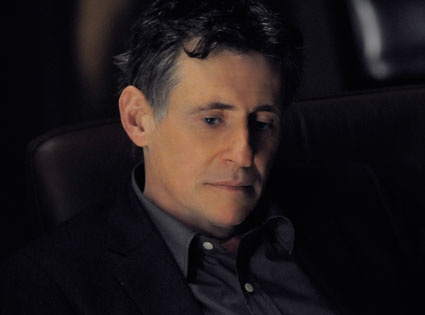 HBO/ Abbot Genser
HBO/ Abbot Genser Gabriel Byrne may play a therapist on HBO's In Treatment, but in real life, he's much more likely to be the patient.
In a recent interview with an Irish television show, the 59-year-old Emmy nominee tells the terrifying tale of his sexual molestation when he was just an 11-year-old altar boy.
Byrne was going to seminary to study to be a priest—it didn't go well.
"Unfortunately, I experienced some sexual abuse," he says. "It was a known and admitted fact of life amongst us that there was this particular man, and you didn't want to be left in the dressing room with him. There were certain boundaries, sexual boundaries, that were crossed."
But that wasn't the only abuse the actor suffered. Teachers would also get physical when Byrne didn't know the answers, especially in math class.
"I feared being beaten, and I was beaten very regularly," he says. "It did affect my sense of myself."
While he didn't fully grasp all that was being done to him as a child, he has grown to understand—and accept—what happened to him.
"I didn't feel that I suffered at the time," he admits. "I just felt it was the way of the world. It took many years to come to terms with and to forgive those incidents that I felt had deeply hurt me."
Nearly five years later, Byrne left seminary after replacing his excitement for the priesthood with a fascination with women.
In the late 1980s, he met and married Ellen Barkin.
"I was helpless in the face of it," he confesses of his love-at-first-sight interest in her.
Byrne also speaks frankly about his battles with alcoholism and depression.
"A single negative thought begins in your head," he explains. "That single negative thought interacts with another negative thought and becomes a reality. And the world seems like the darkest, bleakest, blackest place that you can possibly be. And it has nothing to do with logic, it has nothing to do with reality.
"It's a chemical, and I suppose ultimately becomes a spiritual, imbalance in the body and in the mind. But it feels like the truth. That's what's so insidious about it."
See the entire 27-minute interview right here.
________
Find out what the stars are doing and how you can help the situation in Haiti here.